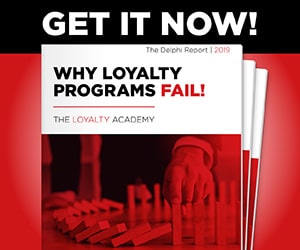Behind every instance of a Debit Card Rewards program is something called a registered card model. The type of Debit Card rewards I am thinking about offers consumers a network of merchants where they can earn cash back by making purchases at the designated merchants with the specific card registered.
In most cases, the merchant network is composed of national retailers offering discounts through their online commerce sites. More recently, local merchants have begun to play the game. Regardless of merchant type, the discounts offered to cardholders are much higher than those from typical credit card rewards programs, in the range of 5-20%. Responding to the deal of the day phenomena, some of these networks offer on-the-spot promotions up to 50% off.
Many banks automatically enroll their customers in the rewards program while others ask customers to opt-in. Automatic enrollment guaranties a program will reach critical mass quickly, but can penalize merchants by suddenly rewarding cardholders for purchases they would have made with or without a rewards offer. By asking people to opt-in, there is still the chance that margin erosion takes place, but also a better chance that those who choose to play the game will focus more of their wallet spend on the specific merchants participating and bring them some additional sales.
Within the banking environment, consumers don’t seem to “register” any fears about associating their debit cards with a rewards program. I suppose the security of joining a program of this type through invitation of the bank where you deposit your paycheck is enough to put any lingering fears to rest.
Registered card is also the important engine that supports other consumer loyalty programs, several of which are becoming household names and garnering lots of press. The innovative social shopping network Zavee asks members to register one or more cards, debit or credit, in order to enjoy the offers made by their growing network of merchants. LevelUp, the location based rewards program that is competing for attention at point-of-sale in New York and a few other metropolitan cities, requires members to associate their preferred payment card to back up their transactions. Surprisingly, Square’s new Pay with Square product is also tied back to a consumer credit card.
These loyalty programs may all appear to be the same, but there are significant differences. Many of the growing tribe of local merchant rewards programs built on serving local merchants and integrated with geo-location features are just neat looking technology standing in the middle of the merchant and your credit card. There are many pros and cons that could be discussed here, but if I were a local merchant, I would prefer to setup my own loyalty program through Belly or another scheme that I could customize and let my customers pay however they want. Instead of asking my customer to join a third party program, associate a card, then come into my store and swipe a card or scan their Smartphone to get a deal, I would simplify the process.
In my mind, Zavee has done just that. Simplify the process for both merchants and consumers. As many of us will agree, few consumers are asking for more plastic cards to be stuffed in their wallet or threaded onto their key ring. They also are tired of having to remember a rewards number or the telephone number they have associated with a program in order to get credit for purchase.
Once card(s) are registered with Zavee, all the customer has to do is search and discover local merchants who are in the network and go shopping. Visa is adopting a similar model with the technology used to support Citgo Good Rewards. Maybe this is an example of the old saw “great minds think alike”?
The registered card model may not be perfect in every situation, but to create easy to execute and highly effective local merchant loyalty programs, it’s hard to beat. With a little more time to get the word out, consumers should soon be as comfortable registering their card with a loyalty provider like Zavee which carries all the requisite security certifications, as they are with their bank.




